What a frail, easily hurt, rather pathetic thing a human body is, naked; somehow a little unfinished, incomplete!
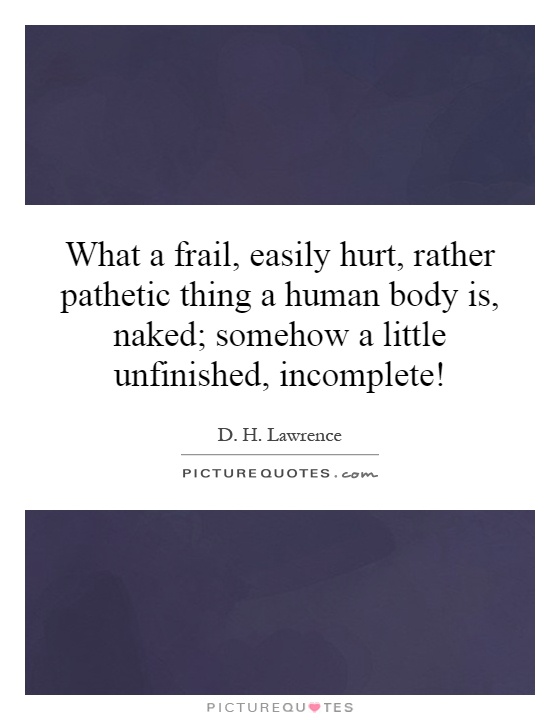
What a frail, easily hurt, rather pathetic thing a human body is, naked; somehow a little unfinished, incomplete!
D.H. Lawrence, a renowned writer known for his exploration of human relationships and the complexities of the human experience, often delved into the vulnerability and fragility of the human body in his works. In the quote, “What a frail, easily hurt, rather pathetic thing a human body is, naked; somehow a little unfinished, incomplete!” Lawrence captures the essence of the human condition and the inherent vulnerability that comes with being exposed in one's natural state.Lawrence's observation of the human body as frail and easily hurt speaks to the physical and emotional vulnerabilities that we all possess. The naked body, stripped of any external adornments or defenses, is a raw and exposed entity that is susceptible to harm and injury. In its nakedness, the human body is laid bare, revealing its imperfections and vulnerabilities. Lawrence suggests that the naked body is somehow incomplete, lacking the protection and armor that clothing provides. This vulnerability is a reminder of our mortality and the fragility of our existence.
The idea of the human body as a “pathetic thing” may seem harsh, but Lawrence is not passing judgment on the body itself. Rather, he is acknowledging the inherent vulnerability and fragility that comes with being human. The human body is a delicate vessel that is subject to the ravages of time, illness, and injury. It is a reminder of our mortality and the impermanence of life.
Lawrence's observation of the human body as “unfinished, incomplete” speaks to the idea that we are constantly evolving and changing. The human body is a work in progress, constantly in a state of flux and transformation. We are never truly finished or complete, but rather in a constant state of becoming. This idea of incompleteness speaks to the imperfections and vulnerabilities that make us human.
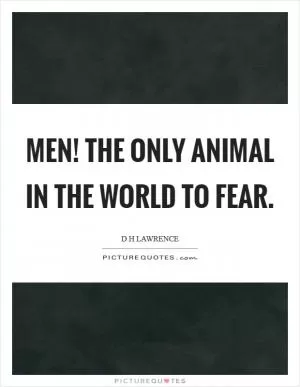
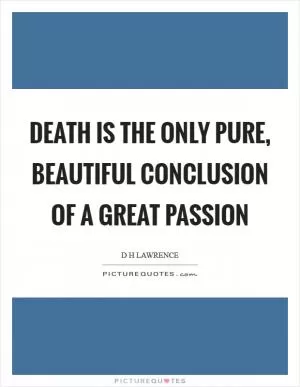
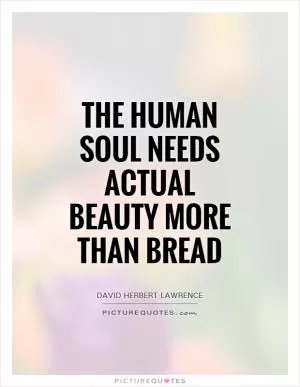

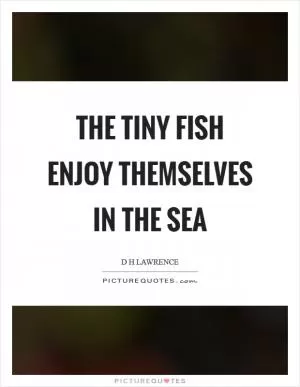
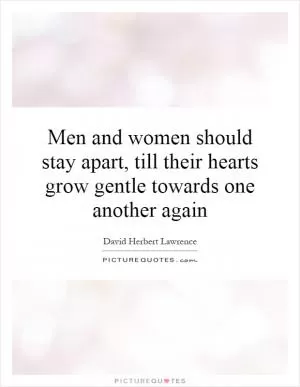
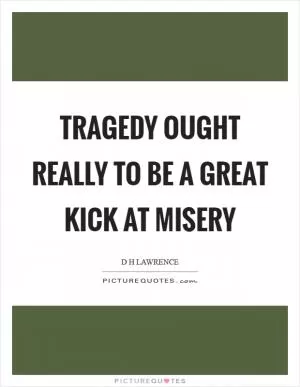
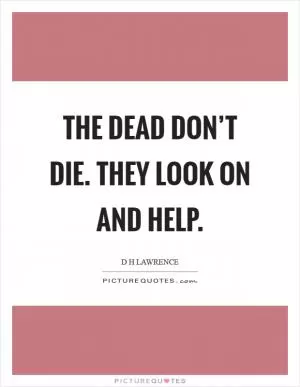

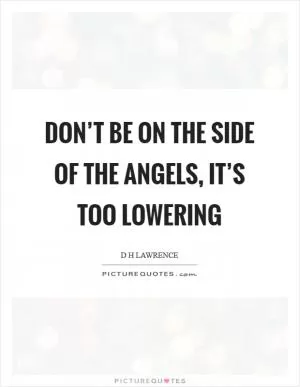


 Friendship Quotes
Friendship Quotes Love Quotes
Love Quotes Life Quotes
Life Quotes Funny Quotes
Funny Quotes Motivational Quotes
Motivational Quotes Inspirational Quotes
Inspirational Quotes